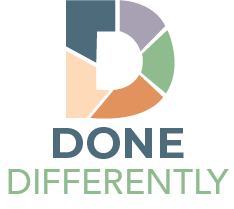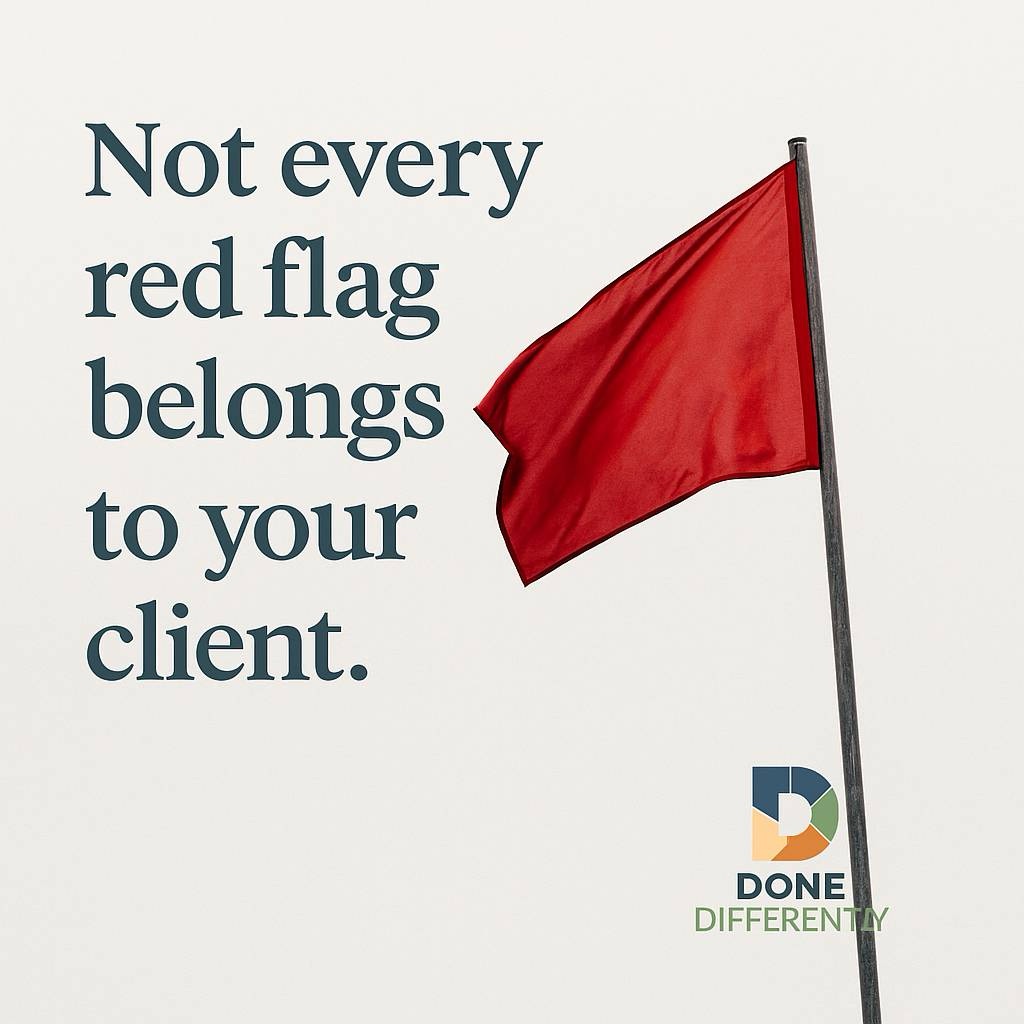Let’s talk about the flags we don’t post on Instagram.
Not the client red flags. Not the ‘this lead ghosted me’ rants. Not the trauma dump disguised as a teachable moment.
I’m talking about our own red flags—the ones that quietly sabotage trust in our coaching spaces, no matter how pretty our websites are.
And what better day than Flag Day to name them, own them, and start doing better?
Trust Isn’t Built by Credentials—It’s Built by Consistency
Your certification might open the door, but your habits decide whether someone walks in or walks away.
Here are 5 common red flags that even well-intentioned coaches fall into (and how to shift them):
1. Jumping into strategy without building safety.
When you rush into planning before a client even feels seen, you send the message: ‘Your performance matters more than your person.’
Shift it: Start sessions with curiosity, not a checklist. Ask how they’re arriving before you ask what they want to tackle.
2. Over-identifying with their pain.
Empathy is powerful. But if your story overtakes theirs, you blur the line between support and spotlight.
Shift it: Use brief, relevant self-reflection—but always come back to them. Let their experience lead.
3. Giving too much, too soon.
Over-coaching is often a sign of insecurity. It looks like over-explaining, stacking tools, or flooding the client with options.
Shift it: Trust the process. A single well-placed question often lands more powerfully than five frameworks.
4. Not owning your limits.
Coaches are not therapists. But when we pretend to be experts in trauma, mental illness, or deep somatic work without proper training, we risk real harm.
Shift it: Name your scope. Be proud of your lane. And always, always refer out when needed.
5. Marketing transformation without transparency.
If every post is a before-and-after fairytale and none of it mentions the mess in between, your brand might look good—but it won’t feel trustworthy.
Shift it: Normalize slow growth. Talk about detours. Be the voice of real change—not rapid results.
A Red Flag Doesn’t Mean You’re a Bad Coach—It Means You’re a Human One
You don’t have to get it perfect. You just have to notice, reflect, and course correct.
And the more you do? The more clients will trust that you’re not just another coach chasing results—but a guide who cares how they feel along the way.
Do a Flag Day Audit
Take 10 minutes and reflect:
- Where do I default to performance over presence?
- Am I walking my talk—or racing through it?
- What part of my brand could use a little more honesty?
Final Thought
Flags aren’t bad. They’re signals. They show us what needs attention.
So raise your own today—not to shame yourself, but to signal your growth.
Because coaching done differently starts with you.

